Malaysia offered a fortune to step in as Commonwealth Games host after Victoria's withdrawal
The 2026 Commonwealth Games could be staged in Malaysia after the country's Olympic Council said there was a £100 million ($A194 m) offer to…
Opinion
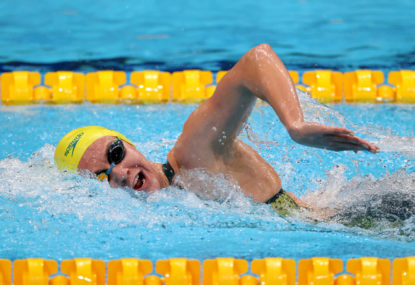
This week it has been reported that the Commonwealth Games could be returning to Melbourne in 2026, two decades after the city last hosted the event to much fanfare and triumph.
It comes after 50 cities, including Sydney, Adelaide and Perth, expressed little or no interest in hosting the event, which Birmingham was due to host then, only for their Games to be brought forward to later this year after Durban were stripped of the hosting rights in 2017.
Adelaide and Perth had previously expressed their interest, which would’ve seen their respective flagship sporting venues, the Adelaide Oval and Optus Stadium, be utilised as the main stadium for the opening and closing ceremonies, and the athletics events.
The Harbour City, which famously hosted the Summer Olympics in 2000 to worldwide acclaim, showed no interest, while Brisbane is focusing all its energy on hosting the 2032 Olympics, having won the hosting rights to the world’s biggest sporting event last July.
It therefore leaves Melbourne as the most logical and likely choice to host the Commonwealth Games, which it previously did in 2006, and the Commonwealth Games Federation will be desperately banking on them for another successful edition in four years’ time.
If selected, it would go a long way towards closing a chapter in the city’s recent dark history, which included over 100 consecutive days in lockdown in 2020, as well as assuming the unwanted mantle of being the world’s longest locked-down city during the COVID-19 pandemic.
During this period, the AFL grand final – which is normally held at the MCG – was shifted interstate twice, first to the Gabba in Brisbane in 2020 and then to Optus Stadium in Perth last year, while the Melbourne Cup in the former year was held behind closed doors.
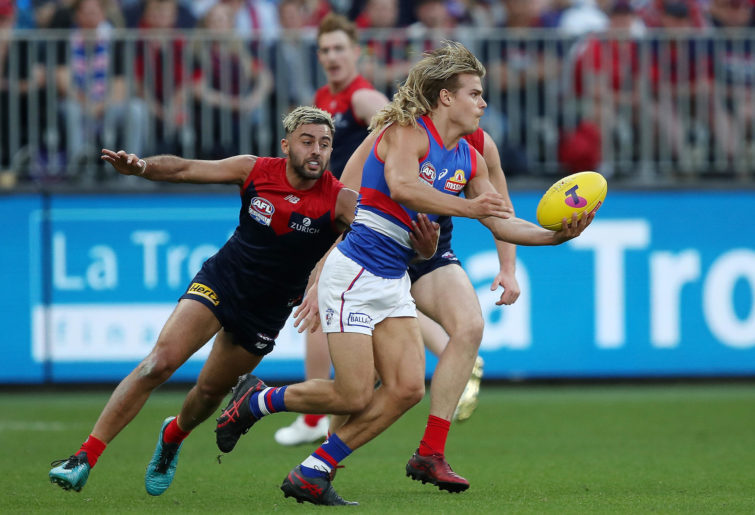
(Photo by Gary Day/AFL Photos via Getty Images)
The Australian Formula One Grand Prix was called off at the death in 2020, while there was no event held last year due to Australia’s ongoing strict border rules, which mandated a fortnight in quarantine for unvaccinated visitors.
State-based teams in rugby league (Melbourne Storm in 2020), the AFL (Richmond in 2020 and Melbourne last year) and netball (Melbourne Vixens in 2020) all managed to win titles in their respective competitions despite spending some time away from Victoria.
In the Melbourne Demons’ case, they still managed to play the majority of their home games in Victoria, though had two home games shifted to Sydney, including the Queen’s Birthday clash against Collingwood, before winning the AFL grand final in Perth.
The prolonged lockdowns in 2020 and 2021 saw Melburnians sentenced to their homes for a cumulative total of 262 days (nearly eight-and-a-half months), and resulted in major economical and financial damage to Australia’s second most populous city.
Potentially hosting the 2026 Commonwealth Games would reinforce its status as the sporting capital of the world and provide a massive economic boost as the Victorian capital continues its rebuild and recovery from the wreckage caused by COVID-19.
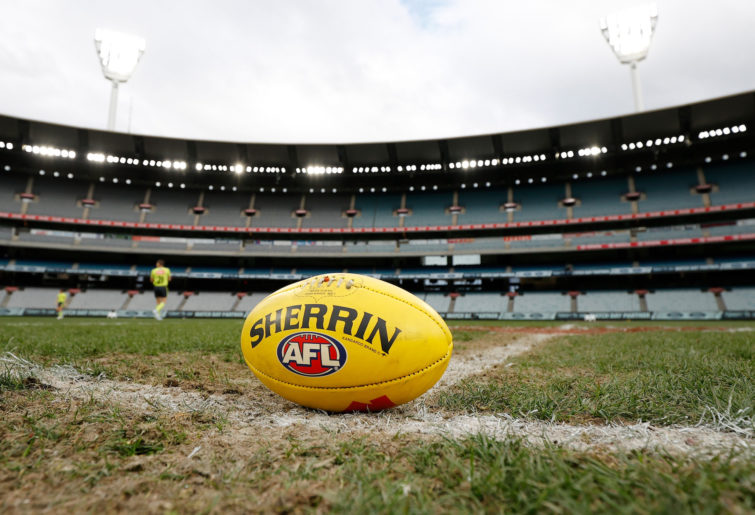
(Photo by Michael Willson/AFL Photos via Getty Images)
Further, it would give the city the perfect opportunity to show the world just how far it has come from the long and dark days of lockdown when it was starved of its lifestyle and its residents were forbidden by law to step foot outside their homes unless it was absolutely essential.
“There is always a hunger for having big major events in our state because they underpin jobs,” the state’s premier Daniel Andrews said.
CEO of the Committee for Melbourne, Martine Letts, chimed in by saying: “We’ve got some extraordinary facilities, and I don’t just mean on the sporting side but also everything else that Melbourne has to offer – events, arts and culture – all the things that we’re well known for, that we’re desperate to revive in a post-COVID situation”.
Further, it would also be the perfect way to mark the 20th anniversary of when the city last hosted the Games, which remains the biggest event it has ever hosted, eclipsing the 1956 Summer Olympics.
It would also come just eight years after the Gold Coast hosted the 2018 event, which proved to be an economical success for the region and was key in Brisbane’s successful bid for the 2032 Olympics, despite the disaster that was the Closing Ceremony, which Channel Seven infamously botched its broadcast of.
At those Games, Australia won 80 gold medals out of a total of nearly 200 medals, while in Melbourne in 2006, Australia won 84 gold medals were won out of 222 medals overall.
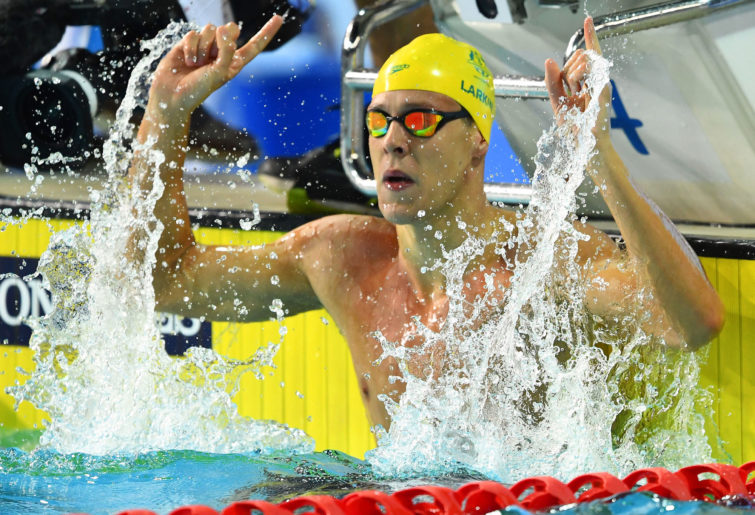
(Photo by Quinn Rooney/Getty Images)
Stephanie Rice first made a name for herself at the Melbourne Games, winning gold medals in the 200-metre and 400-metre medley before going on to capture gold at the Beijing Olympics, held two-and-a-half years later, in those same two events as well as in the 4×200-metre freestyle.
Similarly, Ariarne Titmus announced herself to the swimming world when she won three gold medals and a silver in her very own backyard nearly four years ago, before capturing two golds at the Tokyo Olympics last year.
Another highlight of the 2006 Games was Jane Saville winning the gold medal in the 20-kilometre walk, six years after she was disqualified at the death at the Sydney Olympics, and just over 18 months after she won a bronze medal in the same event at the Athens Olympics in 2004.
Since Melbourne last hosted the Games, a new purpose-built rectangular stadium was built and completed in 2010, playing host to the sports it was specifically designed for including rugby league, rugby union and football.
It indirectly replaced Marvel Stadium as the main venue for those sports, though the indoor venue did host the rugby sevens component of the 2006 event, and also intermittently played host to high-profile football and rugby league matches, such as the State of Origin.
The Docklands venue, which opened in 2000, is currently undergoing a major redevelopment that will see the stadium connect itself to the Melbourne CBD and open up access to the harbourside to its west. This is due for completion by 2023.
Melbourne Rectangular Stadium would therefore loom as a potential venue for the rugby sevens, leaving Docklands to host another sport such as Twenty20 cricket. This is due to the expectation that the MCG would be the primary athletics venue, as it was in 2006.
Another venue that could come into consideration for the cricket component – should it be retained for the 2026 program – is Kardinia Park in Geelong, which is currently undergoing redevelopment, at the end of which it would hold a maximum seating capacity of about 40,000.
Melbourne Park has also undergone major redevelopments in recent years, including an expansion of Rod Laver Arena, the redevelopment of Margaret Court Arena and the construction of a new showcourt (named Kia Arena), all completed ahead of the ongoing Australian Open.
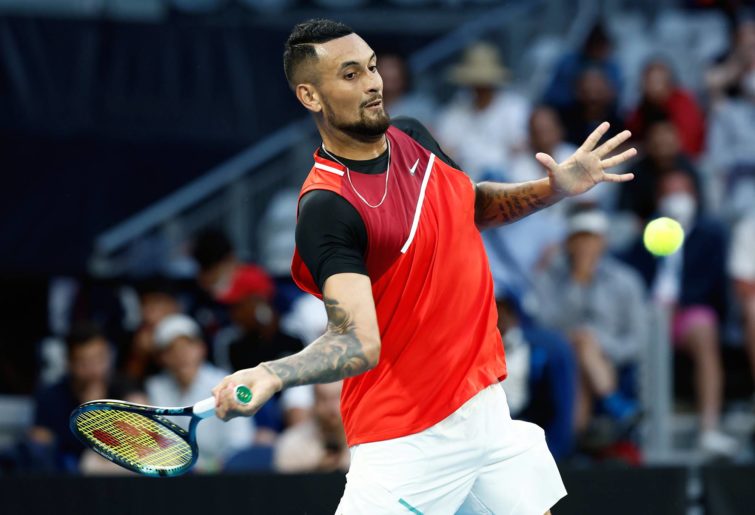
(Photo by Darrian Traynor/Getty Images)
Though unlikely, tennis could conceivably make a comeback in Melbourne. The sport last featured in Delhi in 2010 when Anastasia Rodionova won two gold medals in the women’s singles and doubles, and Matt Ebden won a bronze in the men’s singles.
However, it is more likely that basketball, netball and gymnastics will be the sports to be played at Melbourne Park, as they were in 2006.
Another thing to consider is what impact it could possibly have on the AFL and NRL seasons, and this is dependent on when the Games are potentially scheduled.
Sixteen years ago, when the event was held in March, the start of the AFL season was delayed to the end of the month/start of April, while the Melbourne Storm played the first six rounds of their season away from home.
The ‘G was rendered unavailable for the first few rounds of the 2006 AFL season, as it was being in the process of being restored to an AFL ground, with its first match for the year being the Anzac Day match between Collingwood and Essendon.
Similarly, when the Gold Coast hosted the Games in April four years ago, the AFL’s Gold Coast Suns were forced to spend up to half a season on the road, not returning to Metricon Stadium until Round 11, while the NRL’s Gold Coast Titans spent six weeks away from home.
Whether Melbourne would be ready to do it all again remains to be seen, and with the upgraded infrastructure and facilities on hand, and the lure of a massive financial windfall that would more than aid its post-COVID-19 recovery, there is no reason why they would say no.